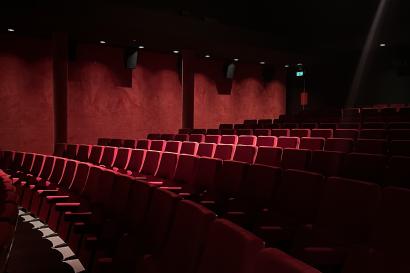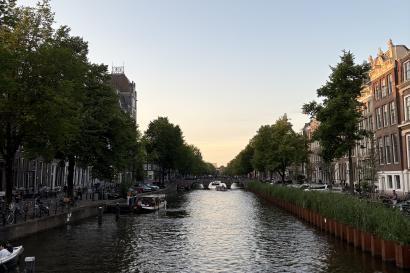I am completely overwhelmed with Berlin. A (not so) brief breakdown of my experience:
I basically had a long layover in Berlin. At first I was thrown off by the idea of going to Germany. Should I try and spend as little as possible, a kind of silent boycott? My grandparents don't buy German goods in protest; should I not spend there, too?
But the modern society that Berlin has built since World War II and subsequent East/West divide during the Soviet Union occupation is fascinating. A kind of alternative vibe, very progressive space; welcoming of refugees and the queer community, and now home to a rather large Israeli and Jewish population, who were able to fast-track to citizenship as part of the reconciliation package. Holocaust and WWII education is evident everywhere; multiple memorials, Jewish and Holocaust museums, and public history information boards dot the city. And further, the modern Jewish and Israeli community makes itself known—I basically only ate Israeli food while I was there, as my hostel was directly across from the great synagogue (the inside of which was destroyed in Kristalnacht but the outside of which still stands in all its massive glory), a neighborhood also home today to a bunch of Israeli immigrants.
The city felt so livable, so accessible to me, both seeped in its terrible history but also reinvented for the modern international millennial. In a weird way I felt very connected to the city; on multiple occasions I found myself feeling almost like I had always been there, and realizing in a very real way where my family comes from. Germany was really the center of Ashkenaz, and the place where Jews really thrived for so long. So many of our words (gesundheit, fleshig, Milkig, mensch) and names (Hoffman, Bauman, Weiss, Blau, Schoenfeld, Taub) and so much of our food (herring, cole slaw, potatoes, meat, sautéed onions) and work ethic (intense, strong) come from Germany and German culture. Often I think I forget just how long the Jews of Germany lived alongside their non-Jewish neighbors, and how for a long time they were equal parts Jewish and German, the way that I am equal parts Jewish and American, more or less.
Another thing that felt very welcoming about the city for me was that it felt very validating in my experience as the great granddaughter of holocaust survivors. In America, Jews walk around with this inherited trauma of genocide. And that trauma dictates so much of our behavior; our voting patterns, our attitudes towards Israel, how we view Germany in general, and how and even why we identify so strongly within the tribe. And amongst the American Jewish community, this is commonly understood knowledge and feels like a very real collective experience. But America as a whole does not really validate this experience. No one ever actually talks about Jewish trauma, because in America we are not the victims of institutional racism. And I think part of the reason I felt ironically at home in Berlin was because the city totally understands that, and the whole city is committed to talking about it and educating, as well as moving on and building reconciliation. That felt like a breath of fresh air.

Rachel Blau
Hi! My name is Rachel Blau and I’m a Junior at Brandeis University studying Business and Social Enterprise and minoring in English and Legal Studies! In my free time I love climbing, hiking, cooking, reading, and
traveling. One fun fact about me is that this semester I’ll be serving as the Amsterdam global ambassador for KAHAL, connecting Jewish students abroad to local resources!









